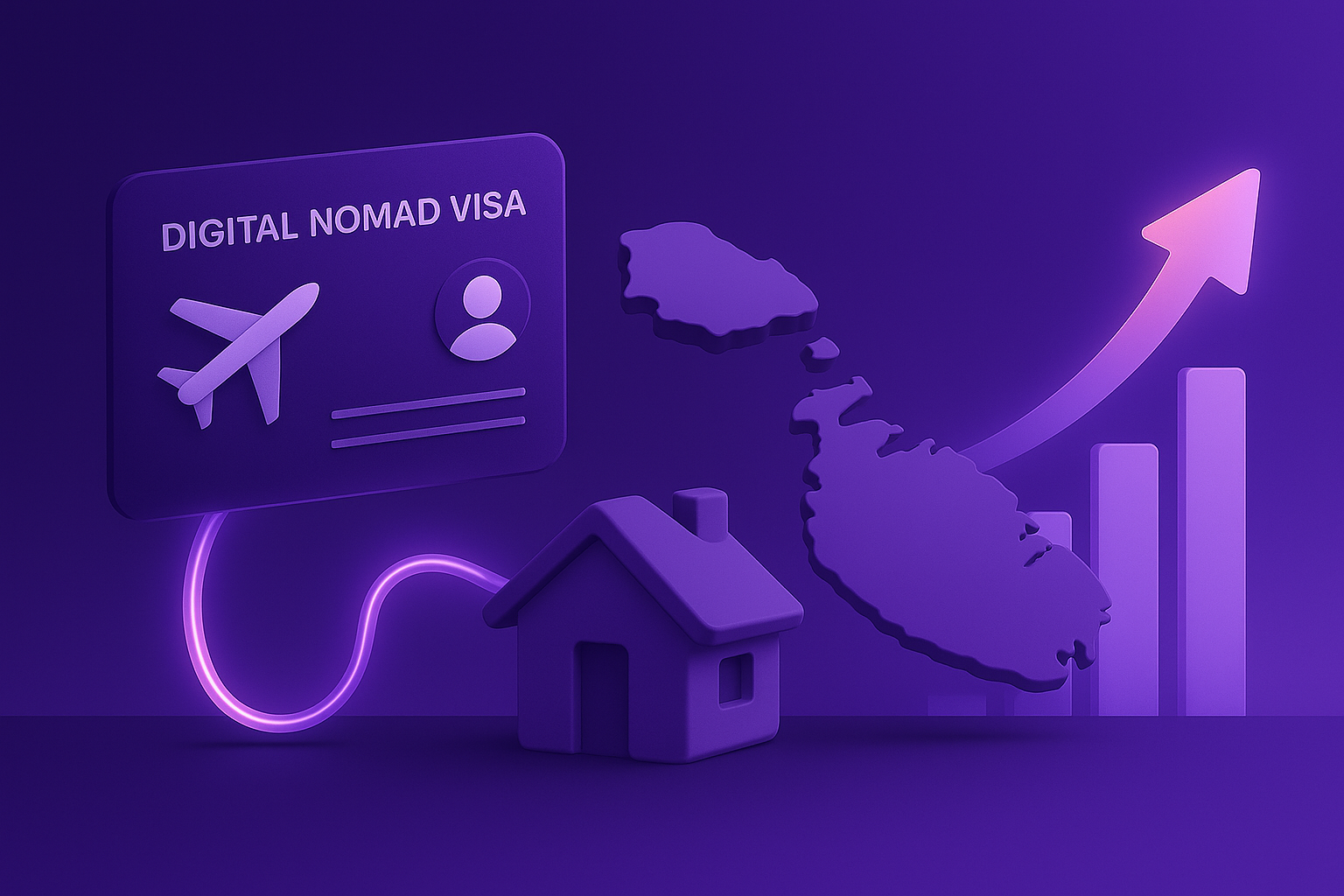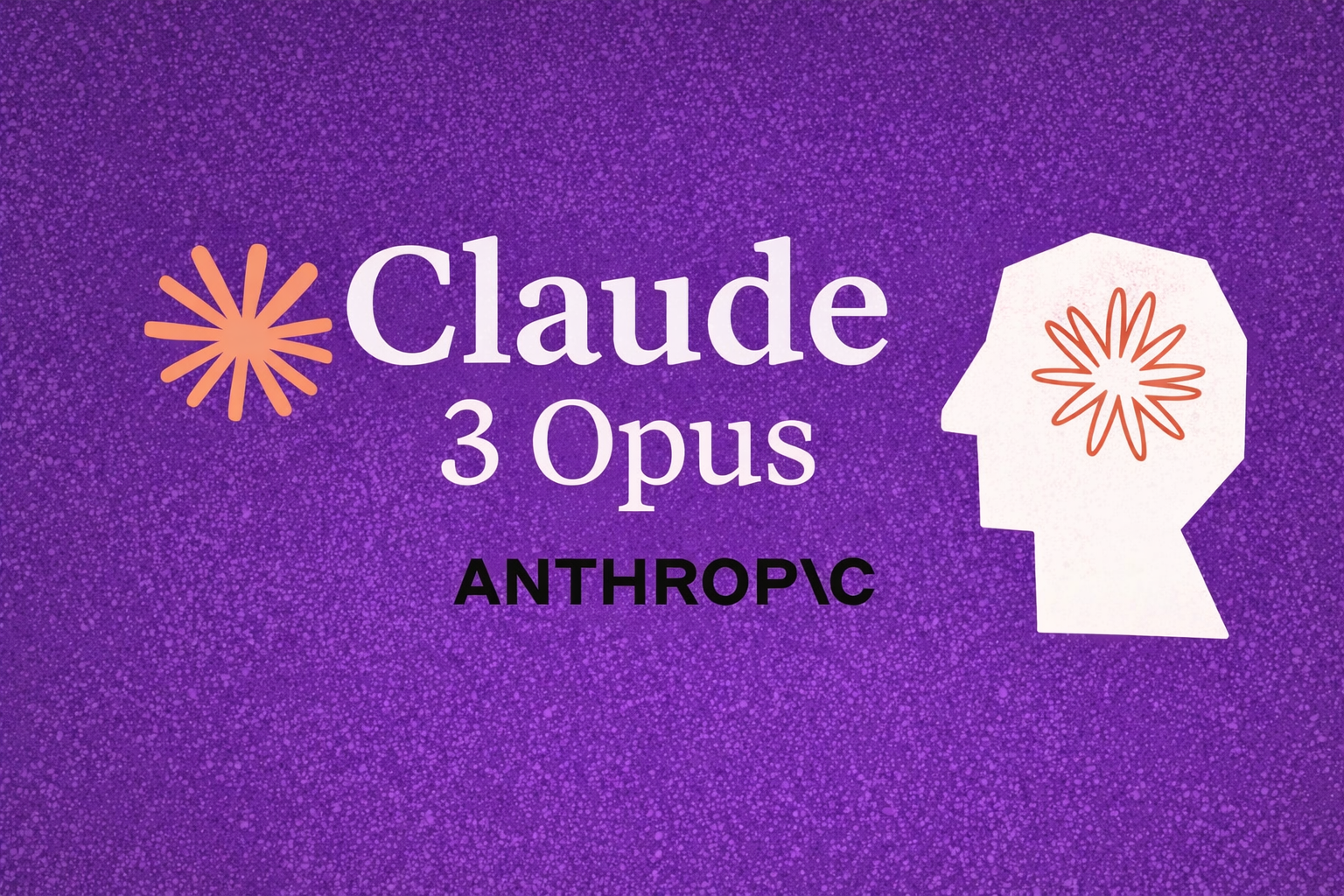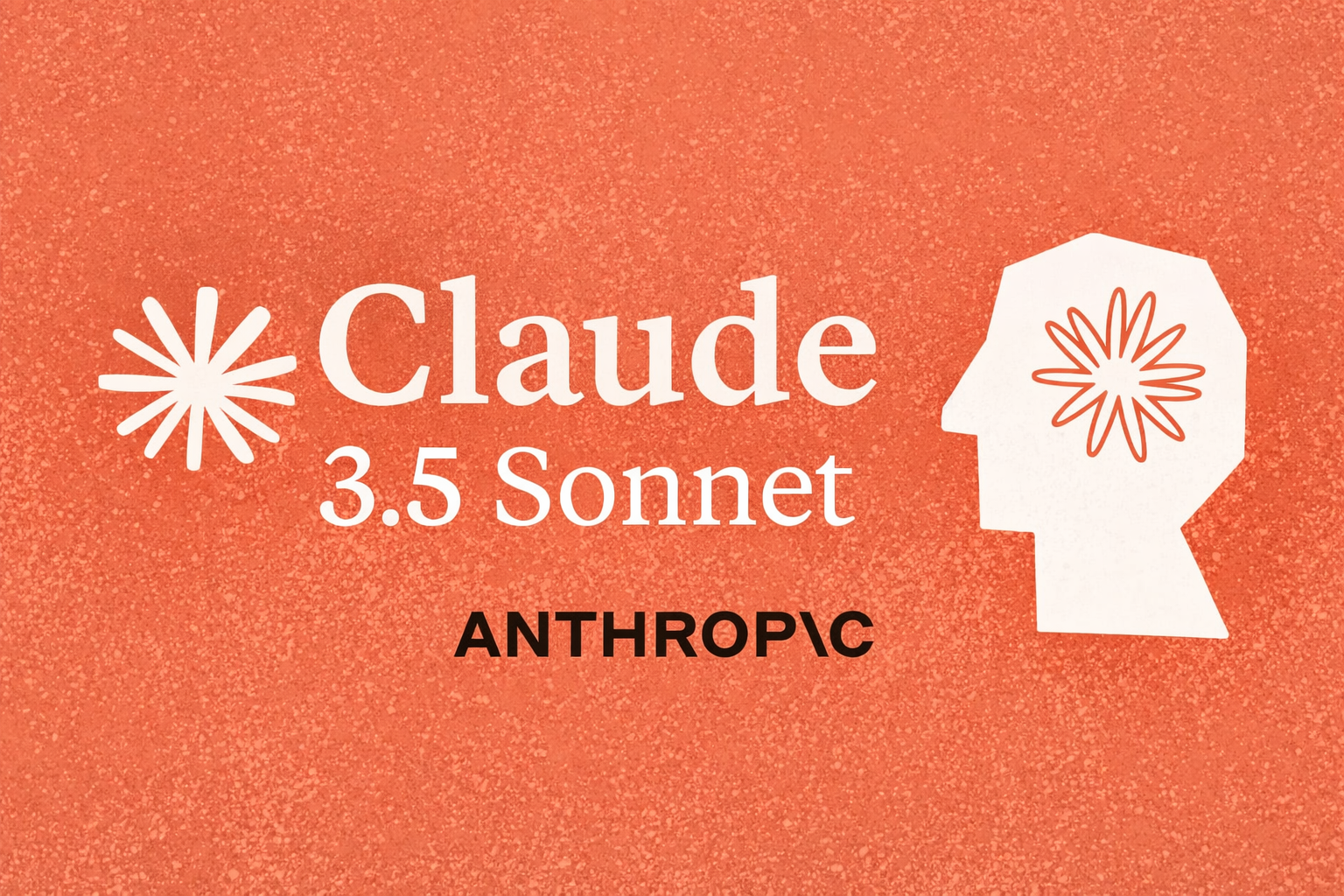Malta offers remote workers and freelancers a pathway to live on this Mediterranean island while working for clients and employers outside the country. The Malta Nomad Residence Permit, commonly called the digital nomad visa, allows qualifying individuals to reside in Malta for up to one year with the possibility of renewal. With English as an official language, year-round mild weather, and access to the Schengen Area, Malta has become an attractive destination for location-independent professionals. This article covers everything you need to know about eligibility requirements, application procedures, costs, and what life looks like for digital nomads in Malta.
What Is the Malta Digital Nomad Visa?
The Malta digital nomad visa is officially called the Nomad Residence Permit. This permit allows third-country nationals to live in Malta while working remotely (non-EU citizens) and EU citizens who want formal residency status to live in Malta while working remotely for employers or clients based outside Malta. The permit is valid for one year and can be renewed up to three times, allowing a maximum stay of four years.
Malta introduced this program to attract remote workers who can contribute to the local economy without taking jobs from Maltese residents. You cannot work for Maltese companies or clients while on this permit—all your work must be for organizations based outside Malta. The permit grants you legal residency status but doesn’t provide a pathway to permanent residency or citizenship through this specific program.
As an EU member state and part of the Schengen Area, Malta offers digital nomads the ability to travel visa-free throughout the Schengen zone for up to 90 days within any 180-day period while maintaining your Maltese residence. This geographic flexibility makes Malta particularly appealing for those who want a Mediterranean base while exploring Europe.
Malta Digital Nomad Visa Requirements
To qualify for Malta’s digital nomad visa, you must meet several eligibility criteria. The primary requirement is proving you earn at least €3,500 per month or €42,000 annually (approximately $3,800 USD monthly) from remote work. This income requirement was updated on April 1, 2024. This income must come from employment with a company registered outside Malta, self-employment serving non-Maltese clients, or freelance work for international customers. You’ll need to provide employment contracts, client agreements, or business registration documents showing this remote work relationship.
You must have valid health insurance that covers you for the entire duration of your stay in Malta. This can be international health insurance or a policy that specifically covers Malta. The insurance must provide comprehensive medical coverage including hospitalization and emergency care.
Proof of accommodation in Malta is mandatory. You can satisfy this requirement with a rental agreement for at least 12 months, a property purchase agreement if you’re buying, or confirmation from a hotel or serviced apartment for your intended stay duration. Short-term Airbnb bookings typically don’t meet this requirement—authorities want to see stable, longer-term housing arrangements.
A clean criminal background check from your home country or country of residence is required. The certificate must be recent, typically issued within the past six months, and may need to be apostilled depending on your country of origin. Malta takes security seriously and uses this check to ensure applicants don’t pose risks.
You must hold a valid passport with at least six months of validity remaining beyond your intended stay. Third-country nationals need to demonstrate they can legally enter Malta, while EU citizens have freedom of movement but may still choose this permit for tax and residency clarity.
How to Apply for the Malta Digital Nomad Visa
The application process for Malta’s digital nomad visa is managed through the Residency Malta Agency. You can apply online through their official portal or submit a paper application, though the online process is faster and more straightforward. Start by creating an account on the Residency Malta Agency website and selecting the Nomad Residence Permit application option.
Gather all required documents before starting your application. You’ll need your passport, employment or freelance contracts proving remote work, bank statements or tax returns showing you meet the income requirement, proof of health insurance, rental agreement or accommodation confirmation, and your criminal background check. Have digital copies of everything ready in PDF format.
Complete the online application form with accurate information about your personal details, work situation, accommodation plans, and intended stay duration. Upload all supporting documents through the portal. The application asks detailed questions about your employment, income sources, and reasons for choosing Malta.
Pay the application fee through the online portal. The fee is €300 (approximately $325 USD) and must be paid before your application is reviewed. This fee is non-refundable even if your application is denied, so ensure you meet all requirements before applying.
After submission, the Residency Malta Agency reviews your application. Processing times typically take 30 to 60 working days (approximately 6 to 12 weeks) after payment is received and background checks are completed. Complex cases or applications requiring additional documentation may take longer. You may be contacted if more information is needed during the review process. Respond promptly to any requests to avoid delays.
If approved, you’ll receive notification through the portal and be issued your Nomad Residence Permit. You’ll need to collect your residence card from the Maltese authorities, which involves providing biometric data like fingerprints. Once you have your card, you’re officially a Malta resident and can begin your stay.
Malta Digital Nomad Visa Costs and Fees
The official application fee for Malta’s digital nomad visa is €300 (approximately $325 USD). This covers the administrative processing of your application but doesn’t include other necessary expenses you’ll incur during the application and relocation process.
Health insurance costs vary significantly based on your age, coverage level, and provider. Expect to pay anywhere from €50 to €200 per month (approximately $55 to $220 USD) for comprehensive international health insurance that meets Malta’s requirements. Annual policies often offer better rates than monthly plans.
Your criminal background check costs depend on your home country. In the United States, FBI background checks cost around $18, though expedited processing adds fees. Other countries charge varying amounts, and you may need to pay for apostille services to authenticate the document, which typically costs $20 to $50.
Accommodation deposits and advance rent represent your largest upfront cost. Malta landlords typically require one to two months’ rent as a security deposit plus the first month’s rent upfront. For a one-bedroom apartment, you’re looking at €900 to €2,400 in initial housing costs depending on location and apartment quality.
Translation and document authentication fees may apply if your documents aren’t in English or Maltese. Official translations can cost €20 to €50 per page, and notarization services add to these expenses.
Budget a total of €2,000 to €4,000 (approximately $2,180 to $4,360 USD) for all application-related expenses, first month’s accommodation, and initial setup costs. This doesn’t include your ongoing living expenses once you’re in Malta.
Tax Implications for Digital Nomads in Malta
Malta’s tax system for digital nomads depends on whether you become a tax resident. You’re considered a tax resident if you spend 183 days or more in Malta during a calendar year. Tax residency triggers obligations to report your worldwide income to Maltese tax authorities, though this doesn’t necessarily mean you’ll pay taxes on all that income.
If you’re in Malta for less than 183 days, you generally remain a tax resident of your home country and follow those tax rules. Your home country may still require you to file taxes and pay on your worldwide income regardless of where you physically work. The Nomad Residence Permit doesn’t change your tax obligations to your home country—it only grants you residency rights in Malta.
Malta has double taxation agreements with over 70 countries including the United States, United Kingdom, Canada, Australia, and most European nations. These treaties typically ensure you don’t pay full taxes in both countries on the same income. The specific treaty terms vary by country, so consult a tax professional familiar with both Maltese tax law and your home country’s tax system.
Digital nomads who become Maltese tax residents may benefit from Malta’s favorable tax schemes depending on their employment structure. Malta operates a remittance-based taxation system for certain non-domiciled residents, meaning you may only pay Maltese tax on income you bring into Malta. However, qualifying for these schemes requires specific conditions and professional tax planning.
Don’t make tax decisions based on general information. Tax situations vary dramatically based on your citizenship, residency history, income sources, and business structure. Engage a qualified international tax advisor before moving to Malta to understand your specific obligations and optimize your tax position legally.
Living Costs for Digital Nomads in Malta
Monthly living costs for digital nomads in Malta typically range from €1,500 to €2,500 (approximately $1,635 to $2,725 USD) for a single person, depending heavily on your lifestyle and chosen location. These figures cover accommodation, food, utilities, transportation, and entertainment but don’t include travel or major purchases.
Accommodation represents your largest expense. A one-bedroom apartment in Valletta, Malta’s historic capital and a UNESCO World Heritage site, costs €900 to €1,400 per month. Sliema and St. Julian’s, modern coastal districts popular with expats and tourists, command similar or slightly higher rents of €1,000 to €1,500 for comparable apartments. These areas offer abundant restaurants, bars, shops, and coworking spaces frequented by the international community.
For more affordable housing, consider areas outside the main tourist zones. Towns like Msida, Gzira, or Birkirkara offer one-bedroom apartments for €700 to €1,000 monthly while still providing good access to amenities and public transportation. The island of Gozo, Malta’s smaller sister island, offers the lowest rents starting at €500 to €800 for one-bedroom apartments, though you’ll sacrifice some convenience and international community presence.
Food costs depend on whether you cook or eat out frequently. Groceries for one person typically run €200 to €300 monthly if you shop at local supermarkets and markets. Restaurants are reasonably priced by Western European standards—expect to pay €12 to €20 for a main course at mid-range restaurants, while budget eateries and takeaway options cost €7 to €12 per meal.
Utilities including electricity, water, internet, and building maintenance fees add €80 to €150 monthly for a one-bedroom apartment. Malta’s hot summers drive air conditioning costs up significantly from June through September, so budget extra for electricity during these months.
Transportation is relatively inexpensive. Malta’s public bus system costs €1.50 per trip or €26 for a monthly pass covering unlimited travel. Most digital nomads find buses sufficient for getting around, though many eventually rent cars for exploring the islands. Car rentals start at €300 to €500 monthly for basic vehicles.
Coworking spaces and cafes with good wifi provide workspace options. Coworking memberships cost €150 to €300 monthly depending on the space and membership tier. Many digital nomads alternate between coworking spaces, cafes, and home to vary their environment.
Entertainment and leisure activities vary widely by preference. A gym membership costs €40 to €60 monthly, cinema tickets are €8 to €10, and a pint of beer in a bar runs €3 to €5. Malta’s beach culture is free, and the island’s compact size means you can explore extensively without major expenses.
Is Malta Good for Digital Nomads?
Malta offers several compelling advantages for digital nomads. English is an official language alongside Maltese, and the vast majority of residents speak English fluently. This eliminates language barriers that plague digital nomads in many other European destinations. You can handle everything from apartment hunting to bureaucracy to socializing entirely in English.
The island’s location in the Mediterranean provides year-round mild weather with over 300 days of sunshine annually. Winters are pleasant with temperatures rarely dropping below 10°C (50°F), while summers are hot and dry. This climate appeals to digital nomads escaping harsh winters or seeking consistent outdoor lifestyle opportunities.
Malta’s EU and Schengen membership grants easy access to explore Europe. You’re a short flight from Italy, Sicily, Greece, Spain, and North Africa. Budget airlines operate frequently from Malta International Airport, making weekend trips and extended European travel convenient and affordable. This connectivity transforms Malta from a small island into a gateway to dozens of countries.
The digital nomad and expat community in Malta is well-established and welcoming. You’ll find coworking spaces, networking events, and social groups specifically for remote workers. The international population in areas like Sliema and St. Julian’s means you’ll easily meet people in similar situations.
However, Malta has notable drawbacks. The island is small—just 316 square kilometers (122 square miles). You can drive from one end to the other in under an hour. This size becomes limiting for some digital nomads who feel constrained after several months. There’s less variety in landscapes, activities, and environments compared to larger countries.
Costs have risen significantly in recent years, particularly for accommodation. Malta is no longer the budget destination it once was. Rents in popular areas now rival or exceed those in many Southern European cities, while offering less space. The cost-to-value ratio disappoints some digital nomads who expect more for their money.
Summer brings intense heat and massive tourist influx. From June through August, popular areas like Valletta, Sliema, and St. Julian’s become crowded with tourists. Beaches fill up, restaurants require reservations, and the relaxed pace of life that exists in other seasons disappears. Many digital nomads leave Malta during peak summer or retreat to quieter areas.
Traffic and infrastructure challenges frustrate residents. Malta has one of the highest car ownership rates in Europe, leading to congestion on the island’s limited road network. Construction is constant as Malta develops rapidly, contributing to noise and disruption in residential areas.
Malta works best for digital nomads who value English-language living, Mediterranean culture, European access, and established expat community over space, nature, and budget-friendly living. It’s ideal as a one-year base or seasonal residence rather than a long-term permanent home for most remote workers.
Bringing Family Members on Malta Digital Nomad Visa
Yes, digital nomads can bring family members to Malta on the Nomad Residence Permit. Eligible family members include your spouse or long-term partner and dependent children. Each family member requires their own separate application and must meet the same health insurance and background check requirements as the primary applicant.
The income requirement increases for families. While solo applicants need €2,700 monthly, the threshold rises to accommodate dependents. Malta requires proof that your income can support your entire family during your stay, though the exact additional amounts aren’t always clearly published. Expect to demonstrate income of at least €3,500 to €4,000 monthly for a couple, with additional requirements for children.
Each family member pays the €300 application fee, meaning a family of four would pay €1,200 in application fees alone. Health insurance must cover all family members, significantly increasing that expense. A family health insurance plan typically costs €200 to €500 monthly depending on family size and coverage level.
Family members receive residence permits with the same validity period as the primary applicant. Everyone’s permits expire simultaneously, and all must leave Malta or renew together. This synchronization simplifies administration but means if the primary applicant loses eligibility, all family members must also leave.
Dependent children can attend Maltese schools while residing under the Nomad Residence Permit. Malta offers public schools (taught in Maltese and English), English-medium state schools, and international private schools. International school fees range from €3,000 to €8,000 per year depending on the school and grade level.
Your spouse or partner cannot work for Maltese employers while on the dependent Nomad Residence Permit. They can continue working remotely for non-Maltese employers or clients, but if they want to work locally, they would need to obtain appropriate work authorization separate from the nomad permit.
Visa Revocation and Compliance
Your Malta Nomad Residence Permit can be revoked if you violate the conditions under which it was granted. The most common ground for revocation is providing false information or fraudulent documents during your application. Malta authorities take document fraud seriously and will cancel permits if they discover you misrepresented your income, employment, or other eligibility criteria.
Working for Maltese companies or clients while on the nomad permit violates the permit conditions and can lead to revocation. The permit explicitly restricts you to working for employers and clients outside Malta. If authorities discover you’re providing services to Maltese entities, your permit may be cancelled and you could be required to leave Malta.
Criminal activity during your stay grounds immediate permit revocation. Any arrests, criminal charges, or convictions while residing in Malta will trigger review of your permit status. Malta has zero tolerance for permit holders who engage in illegal activity.
Failing to maintain the required income level throughout your stay can jeopardize your permit. While authorities don’t continuously monitor your income, renewal applications require proof you still meet the income threshold. If you can’t demonstrate continued compliance when renewing, your application may be denied.
Not maintaining valid health insurance for your entire stay violates permit conditions. If your insurance lapses and authorities discover this, they may revoke your permit. Keep your insurance current and carry proof of coverage at all times.
Extended absences from Malta could raise questions about whether you’re genuinely using the permit for its intended purpose. While brief trips outside Malta are expected and permitted, spending the majority of your permit period outside Malta might be viewed as misuse of the residence permit.
If your permit is revoked, you’ll be required to leave Malta and may face difficulties obtaining other Maltese permits or visas in the future. Revocation is noted in immigration databases and can affect your ability to visit or reside in other EU countries as well.
To maintain compliance, keep accurate records of your remote work, maintain your health insurance, avoid any local employment, and ensure your income remains above the threshold. If your circumstances change significantly—such as losing a major client or changing employers—inform the Residency Malta Agency promptly rather than letting them discover issues during renewal.
FAQ
Can I work for Maltese companies on this visa?
No, the Nomad Residence Permit prohibits working for Maltese employers or providing services to Maltese clients. Your employment or freelance work must be exclusively for companies and clients based outside Malta. This restriction is fundamental to the permit—Malta designed it to bring remote workers who don’t compete for local jobs. Violating this condition can result in permit revocation and removal from Malta.
How long does the application take to process?
Processing times for Malta’s digital nomad visa typically range from four to six weeks after you submit a complete application with all required documents. Complex cases or applications requiring additional documentation may take longer. Submit your application well before your intended move date to account for processing time and potential delays. You cannot legally reside in Malta on tourist status while waiting for your nomad permit decision.
Can I travel to other EU countries with this permit?
Yes, Malta’s Nomad Residence Permit allows you to travel throughout the Schengen Area for up to 90 days within any 180-day period. This is the same travel allowance that tourists receive. Your permit doesn’t grant unlimited travel rights across Europe—it provides residence in Malta specifically, with tourist-level access to other Schengen countries. If you want to spend extended time in other EU countries, you’d need to obtain residence permits from those countries.
Do I need to speak Maltese?
No, you don’t need to speak Maltese or Italian to live in Malta as a digital nomad. English is an official language in Malta, and virtually everyone speaks it fluently. All government services, business operations, and daily life can be conducted entirely in English. Maltese is spoken locally, and learning basic phrases is appreciated, but it’s not required for residency or daily functioning.
Can I extend beyond the initial year?
Yes, the Nomad Residence Permit can be renewed up to three times, allowing a maximum total stay of four years. After your initial one-year permit expires, you can apply for renewal if you still meet all eligibility requirements including the income threshold, health insurance, and accommodation proof. Each renewal requires a new application and supporting documents demonstrating continued compliance. After four total years, you must leave Malta or apply for a different type of residence permit if eligible.
What happens if my income drops below the minimum?
If your income falls below the €2,700 monthly requirement during your permit validity, you’re technically in violation of the permit conditions. While Malta doesn’t continuously monitor your income, you’ll need to prove you still meet the threshold when applying for renewal. If you can’t demonstrate sufficient income at renewal time, your application will likely be denied. If your income drops temporarily, consider whether you can meet the requirement by the time renewal comes up, or plan to leave Malta before your permit expires.





